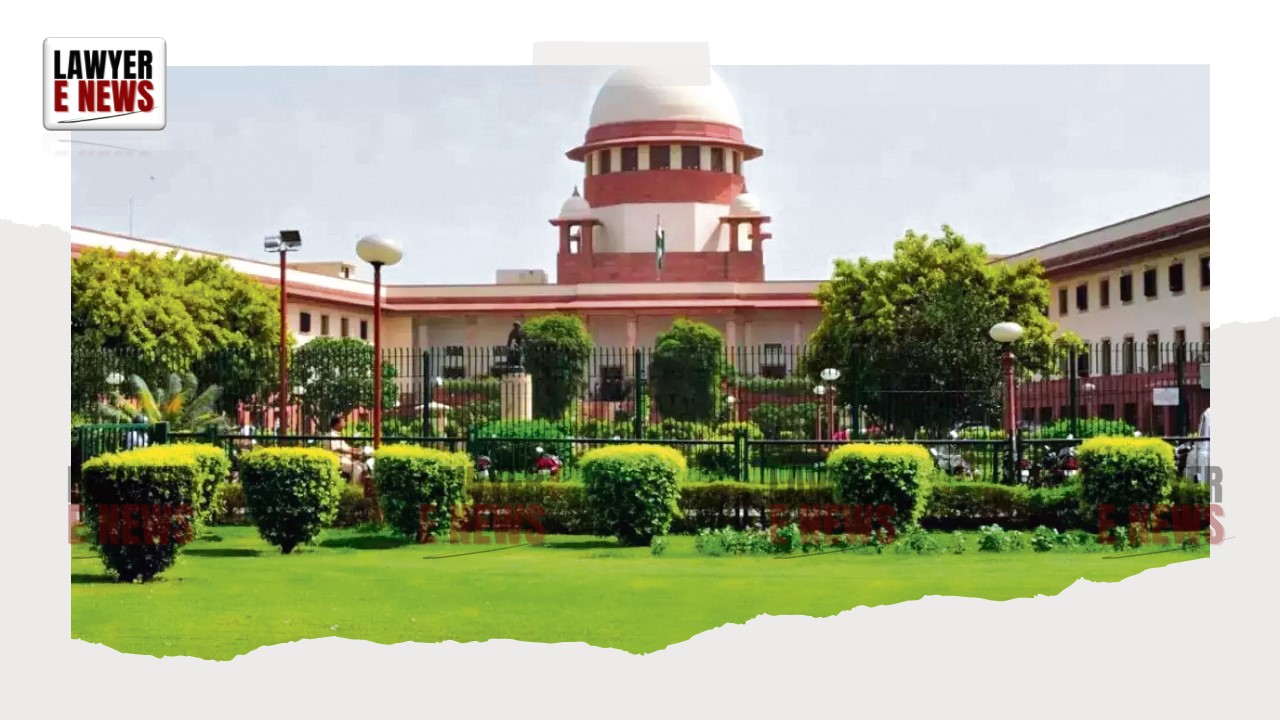-
by Admin
15 February 2026 5:35 AM



High Court's decision maintaining termination of Yash Developers for failure to complete project within stipulated time under Maharashtra Slum Areas Act affirmed.
Supreme Court has dismissed the appeal of Yash Developers against the termination of their development agreement by the Apex Grievance Redressal Committee (AGRC). The Court highlighted the importance of accountability and timely completion of projects under the Maharashtra Slum Areas (Improvement, Clearance and Redevelopment) Act, 1971. This landmark judgment, delivered by Justices Pamidighantam Sri Narasimha and Aravind Kumar, underscores the critical role of statutory authorities in ensuring that slum rehabilitation projects are completed without undue delay.
In 2003, Yash Developers was appointed by the Harihar Krupa Co-Operative Housing Society Limited to develop a slum rehabilitation project in Borivali, Mumbai. The project faced significant delays due to various litigations, the need for environmental clearances, and issues with non-cooperating slum dwellers. Despite the issuance of necessary approvals and clearances by 2014, the project did not progress as expected. The AGRC terminated Yash Developers' agreement in 2021 due to the prolonged delays, a decision that was upheld by the Bombay High Court and subsequently challenged in the Supreme Court.
The Supreme Court emphasized the limited scope of judicial review under Article 226 of the Constitution against decisions made by statutory authorities like the AGRC. It reiterated that such reviews are confined to examining the legality and validity of the power exercised, rather than re-assessing factual disputes.
The Court underlined the duty of statutory authorities, such as the Slum Rehabilitation Authority (SRA), to ensure timely completion of projects. The judgment stated, "The CEO and the SRA are accountable for their actions. While we reject the justification for delay, we record our dissatisfaction about the indifference, amounting to negligence on the part of CEO and the SRA."
Yash Developers attributed the delays to prolonged litigation with rival developers, the need for environmental clearances, and non-cooperation from some slum dwellers. However, the Court found these justifications insufficient, noting that the developer should have anticipated and managed these challenges more effectively.
The Court scrutinized the financial arrangements made by Yash Developers with various third parties, concluding that the developer's financial instability significantly hindered the project's progress. The judgment noted, "The real wherewithal and financial stability of a developer plays an extremely pivotal role, as finance is the very lifeline for successful implementation and completion of the slum scheme."
Addressing the procedural objections raised by Yash Developers, the Court upheld the AGRC's decision, stating that the statutory authorities have the power to suo moto examine delays and take necessary actions to ensure the project's completion.
Justice Pamidighantam Sri Narasimha remarked, "Accountability in itself is an essential principle of administrative law. Judicial review of administrative action will be effective and meaningful by ensuring accountability of the officer or authority in charge."
The Supreme Court's dismissal of Yash Developers' appeal reinforces the judiciary's commitment to ensuring timely and efficient implementation of slum rehabilitation projects. This decision highlights the necessity for developers to adhere to project timelines and for statutory authorities to exercise their duties diligently. The judgment also calls for a performance audit of the Maharashtra Slum Areas Act, 1971, to address the systemic issues hindering the effective implementation of slum rehabilitation schemes.
Date of Decision: July 30, 2024
Yash Developers vs. Harihar Krupa Co-Operative Housing Society Limited & Ors.
